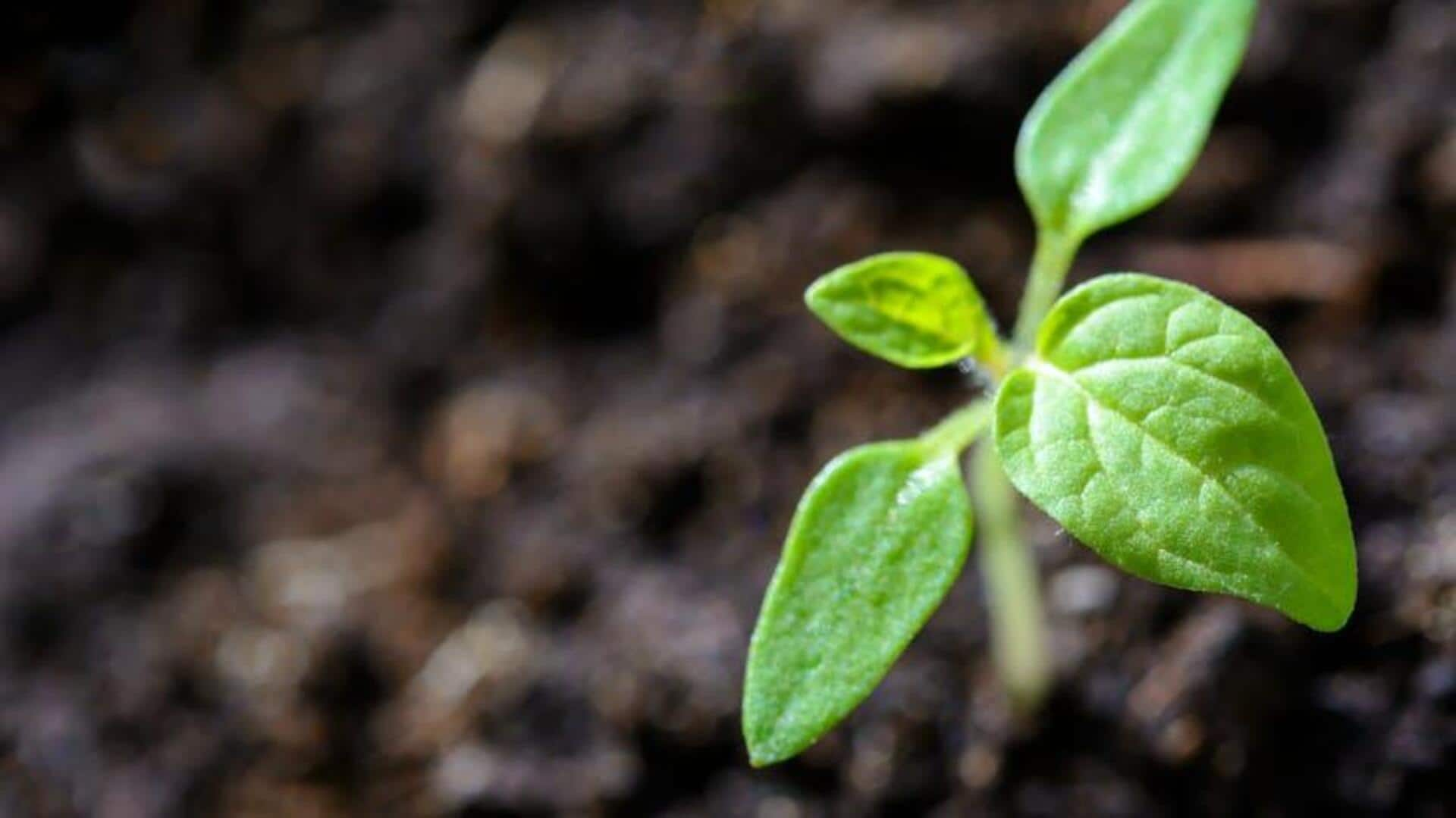
Coconut fiber: A natural way to keep soil moist
What's the story
Coconut fibers, sourced from the husk of coconuts, are gaining popularity for their ability to make soil retain moisture. This natural material works particularly well for tropical plants that flourish in humid conditions. By improving water retention, coconut fibers ensure that the soil stays moist, which is critical for the health and growth of plants. Their use can lead to healthier plants and less frequent watering.
Water retention
Natural water retention properties
Coconut fibers have a unique structure that helps them retain water effectively. The fibrous nature of coconut husks makes them absorb and hold moisture up to several times their weight. This property makes them an excellent addition to soil mixes, especially in regions where maintaining adequate soil moisture can be challenging due to high temperatures or infrequent rainfall.
Plant growth
Benefits for tropical plant growth
Tropical plants tend to need consistent moisture levels to thrive. Coconut fibers help create an ideal environment by keeping the soil moist for long periods. This consistency supports root development and nutrient uptake, leading to healthier plants. Using coconut fibers can also reduce stress on plants during dry spells as they provide a steady supply of water.
Sustainability
Eco-friendly and sustainable option
Coconut fibers are a sustainable resource as they are a byproduct of coconut production. Using these fibers reduces waste and promotes eco-friendly gardening practices. Unlike synthetic materials used in some gardening products, coconut fibers decompose naturally without harming the environment. This makes them an attractive option for environmentally conscious gardeners.
Cost-effectiveness
Cost-effective solution for gardeners
Over time, using coconut fibers in your gardening can prove to be inexpensive. Although you may have to invest in getting these materials in the first place, their capacity to enhance water retention can help you use lesser water and pay lesser utility bills. Also, healthier plants can require fewer treatments of fertilizers or pest control, saving costs on the maintenance of your garden.